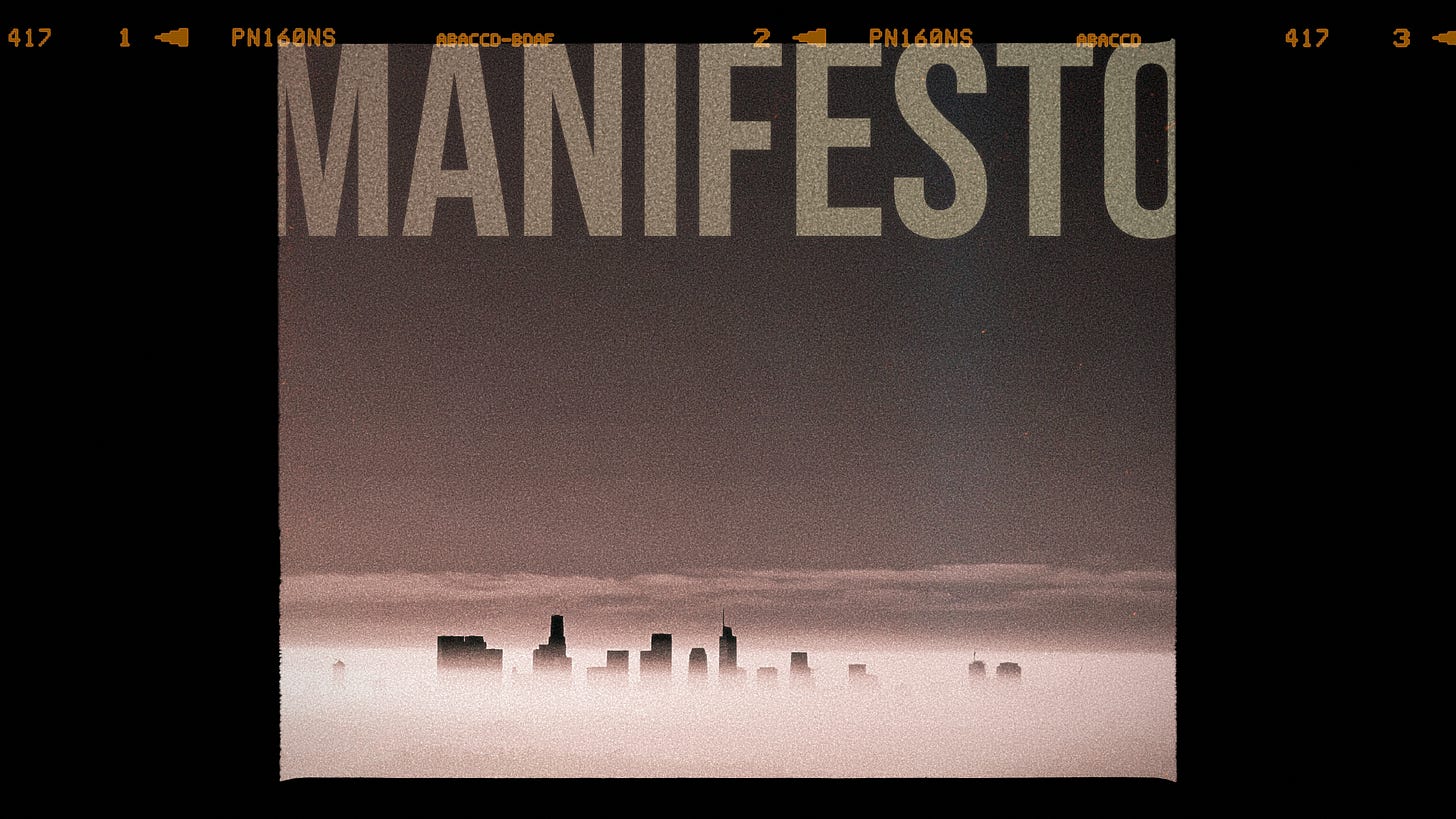I moved to Los Angeles a decade ago to become a television writer. It was a time when Sunday night HBO was appointment watching, Mad Men and Breaking Bad were both still on the air, and even broadcast TV was still kicking. Netflix had not yet debuted House of Cards. The medium was thriving and exciting. The dream of getting hired as an assistant or PA, and working one’s way up to staff writer and beyond seemed attainable. A Hollywood career was aspirational. Working as a TV writer seemed like the best job anyone could have.
All of this is over. The industry I moved to town for does not exist anymore. Netflix’ debt-fueled growth scared the studio chief lemmings into replicating its business model, which turned writing from a well-paying profession into part-time gig work. Writer’s rooms by and large do not exist anymore. Starting at the bottom and learning the ropes of television production on your way to the top ensured that the industry was self-sustaining and had a reliable supply of competent, experienced show runners and producers. But our new tech overlords and their Hollywood stooges do not want that anymore. The studios don’t need well-made entertainment that appeals to the audience, they only need grist for their content mill. It’s now a business that cares about platforms and stock price first, users and audience last.
It took me years to come to terms with the loss of this once great industry. My own career never soared to any impressive heights (I developped a few pilots that always got stuck at some point in the pipeline and released a few very small independent projects), but I believed in the art form and was passionate about it. Chasing the dream was still a worthy pursuit. I remember having a conversation with a friend during the late 2010s at the height of the streaming frenzy when the streamers poured out buckets of money over the town. There was a gold-rush madness to the whole proceedings, people who should have known better naively opening their arms to malignant tech interlopers whose business fundamentals didn’t make sense. I told my friend that I wouldn’t want my show to be just another tile on the Netflix home page most people scroll over and never see again. I remember wondering aloud if people really expected the level of production to be sustainable. I wondered what would happen when the money dried up.
We now know what happened. The town is all but dead. The industry is all but dead. If you were a multi-millionaire mega-producer in 2019 you are still doing fine now. But for everyone else, the bottom fell out. People are looking around and wondering why we let the CEOs turn a glamorous, high-profit, well-paying industry into bloodless gig work that barely makes any profits for the legacy studios— a self-inflicted wound of vertiginous idiocy.
What is the point of still being in Los Angeles, then, a town that feels like a husk of its former self, battered by the poly-crises of Covid, the dual strikes, and biblical wild fires that leveled entire neighborhoods? What is the point of working in a creative industry headed by people who despise creativity and, even worse, don’t seem to care about or understand at a fundamental level the product they’re trying to sell?
The point for me is that I still love and believe in entertainment. I think entertainment is important. I say entertainment and not art, because that’s what the business of Hollywood is. I also say entertainment and not art because entertainment was once the greatest American export but has now been diminished and triviliazed by tech barons and their minions. Hollywood is now a Silicon Valley appendage. The Silicon Valley tech industry is anti human and anti humanist. “Western man is externalizing himself in the form of gadgets", William S. Burroughs writes in Naked Lunch. Hollywood has externalized itself in the form of “content”.
Now that I have grieved the loss of an industry destroyed by greedy and idiotic studio heads, it is time to move forward and rebuild this town from the ground up. When I first started this blog, I wanted to call it Hollywood Fireweed, for a thousand flowers can bloom in the ruins of Hollywood, and every creative in town can plant the seed. I believe more than ever that there is a large group of people, creators and audiences alike, a movement that rejects the current “content” regime and aches to reclaim the mantel of entertainment.
Today, let’s reclaim entertainment. Let’s do it together.
Ironically, technology is precisely what allows us to do so. It has never been cheaper to shoot something. The means to distribute work are readily available online. Tech monopolies and their weaponized algorithms are and forever will be enemies, but we can use the available tools to our advantage. This is what I intend to do.
Umlaut Productions is an imprint that will create and release micro-budget, independently produced movies made by humans for humans. We will focus on dramas and thrillers aimed at an adult audience, the kind of movie that would have been a mid-budget programmer in the 1990s— think David Mamet, Carl Franklin, Steven Soderbergh, James Foley, Mario Van Peebles, John Dahl, Abel Ferrara. We will shoot real actors on real locations doing real things and talking about real issues. We want our movies to have meaning, to be artful, but we want above all to recapture a time when movies offered sophisticated and smart entertainment.
We are a small team of dedicated creatives who want to build a community of like-minded individuals. As Sean Baker would say, we are “indie lifers”. This art form is in our blood, a heart beat at 24 frames per second. If you feel the same, please reach out. There are plenty of us out here. Let’s build a movement, and show this town and the world what a truly independent spirit can do.
With Umlaut Productions, our aim is not only to produce movies, but we also want to build an audience and connect with it in a new way. Culture-defining mainstream entertainment is all but extinct already, and the advent of AI will only further fracture a once near-monolithic audience. What this means for film creatives is that we need to embrace the “creator model”, for better or worse. It means, to put it crassly, defining a niche, building a brand and cultivating an audience passionate about it.
Admittedly, this is challenging to do in the movie space. Movies take much longer to write, shoot and release than vlogs, streams, tiktoks and the like. There is no way to continuously supply a subscriber base with a new movie every week or so. Additionally, full-length movies are by and large not represented in this space. They are still a form of entertainment people watch on dedicated apps, or, in the best of all worlds, at the movie theatre. Movies are a discrete experience. They are usually not part of a larger integrated brand presence online. Movies are their own brand, if you will. Audiences don’t care if they are released by WB or Universal or Paramount.
There are, of course, two counterexamples. The first one is A24, the indie studio that has cultivated a clearly-defined brand of serious, gritty filmmaking and attracted an obsessive audience. The second one is Disney. The less said about it the better.
The goal for Umlaut Productions, then, is to become a movie studio Youtube channel. We are not looking for theatrical distribution at this juncture. Our business model will be to release each movie for free on Youtube as well as FAST channels. We want to meet the audience where it is, entertain the largest amount of people possible by not charging any money up front.
Our way to make money is to offer the possibility of buying the movie in the form of physical media— VHS tapes, BluRay DVD, vinyl of the score, etc. Throw in some shirts and some hats. Our hope is that we can touch an audience that resonates not only with the movies we put out themselves, but with our philosophy behind it, our indie ethos. Our hope is that we will share on-screen and behind-the-scenes stories powerful enough that an audience will want to own a part of it on physical media and thus support the cause financially. Any profit generated on our movies will be reinvested in the next movie in the pipeline, with the hope being that each subsequent production will have a bigger budget than the previous one.
Our first movie has a budget of $15,000. It is small enough that at least breaking even is not complete pie in the sky. It is big enough to make it a sizable private investment. It is a calculated risk, a logistical challenge, a proof of concept. At this moment, our business model is a theory that needs to be proven correct. If it works, it is one way forward in an industry that is stuck in a dead end.
I will chronicle the entire journey on this blog in weekly posts. I will not paywall any of it but if you find this useful or inspiring or simply want to support a small scrappy outfit like ourselves, you can become a paid subscriber. You will be guaranteed my eternal gratefulness, but you can also be assured that any money made from this blog will be reinvested in Umlaut Productions. I will do a full accounting of the numbers on a regular basis if there are any numbers to be accounted for. I want the making of this movie and this business to be fully transparent, so others can take lessons from it if they choose.
For now, join in our cri de coeur: Hollywood is dead. Long live Hollywood.




I agree that there is a new (r)evolution in microbudget cinema taking hold. I am excited to see where you and others take it Eric. It holds tremendous potential. I am not sure I agree that YouTube -- on any Global Streaming Platform -- is an important early component for the films themselves. I think such work needs the touch of slow distro. YouTube and other platforms are great for the discussion, marketing, and context, but for the art & entertainment I think other methods will allow it to take hold. You inspired me to do a quick 30+ list of fave microbudget (sub $300K) films. I will publish that this weekend.
Well put! I write a filmstack all about indie film marketing and PR - there might be some useful info there as you build your studio!